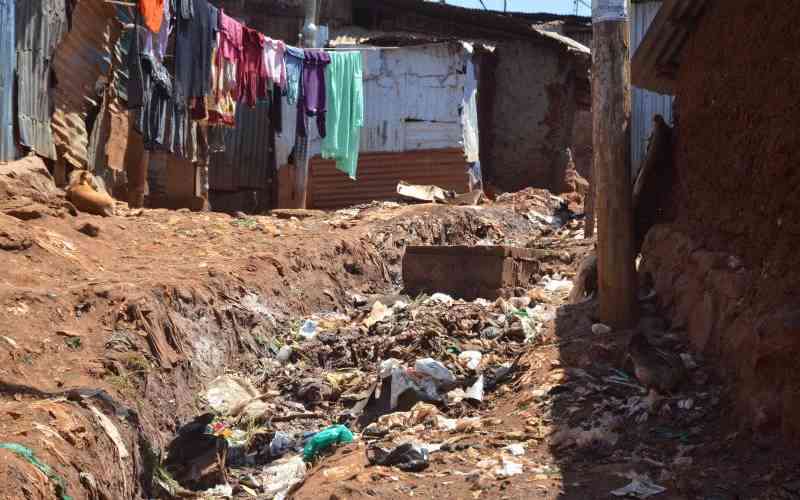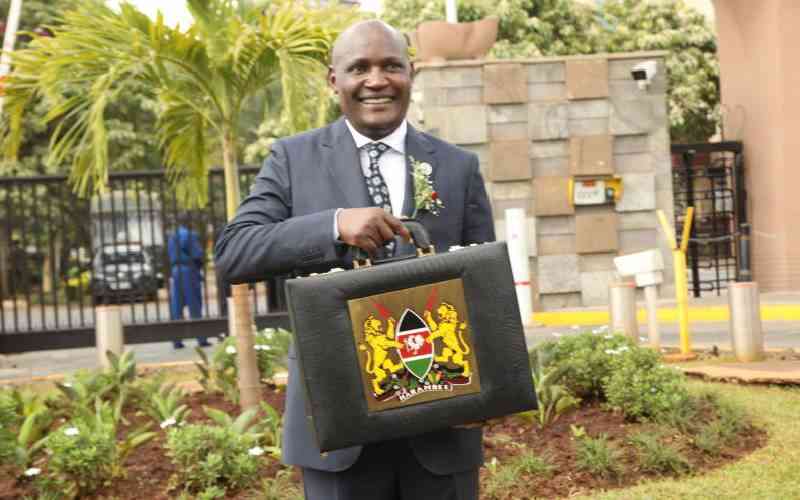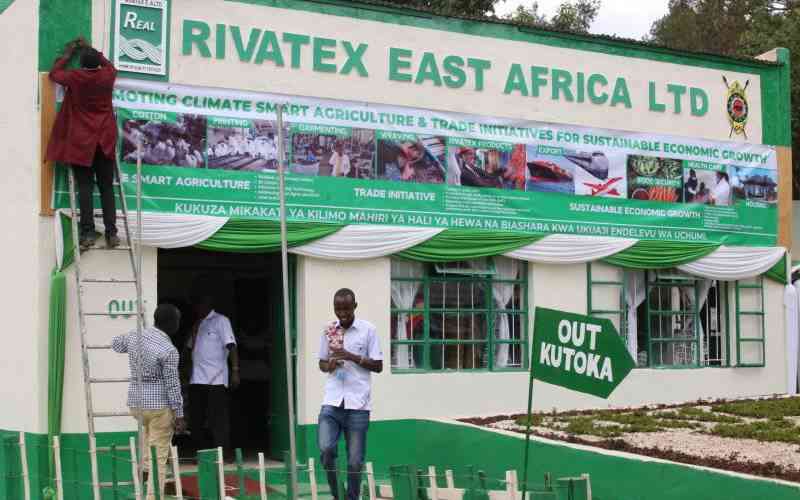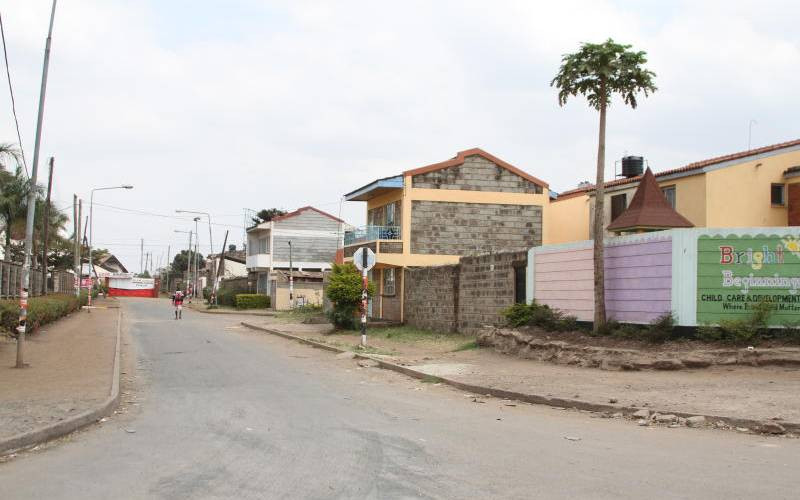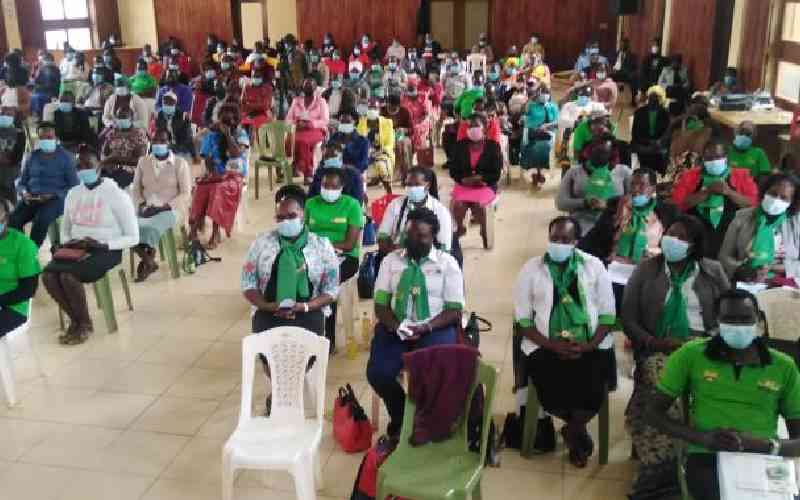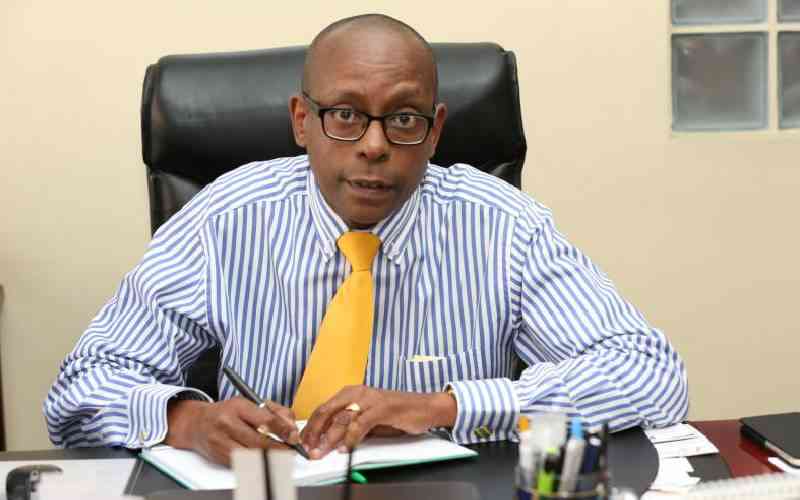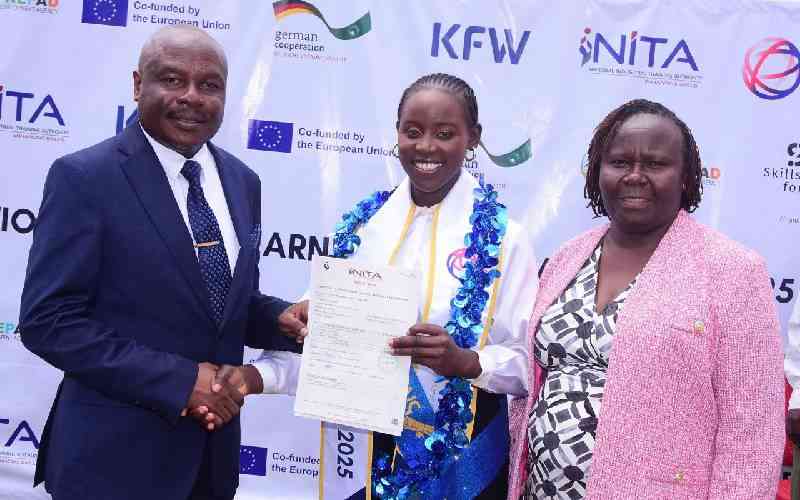
The government has intensified efforts to formally recognize and validate the skills of thousands of Kenyans working in the informal sector through the Recognition of Prior Learning (RPL) programme.
Labour Principal Secretary Shadrack Mwadime, said the move is a transformative initiative under the Skills Initiative for Africa (SIFA) project.
Speaking during the RPL Graduation Ceremony at the National Industrial Training Authority (NITA) headquarters in Nairobi, the PS noted that Kenya’s development will be driven by skilled citizens whose talents must be recognized even without formal education.
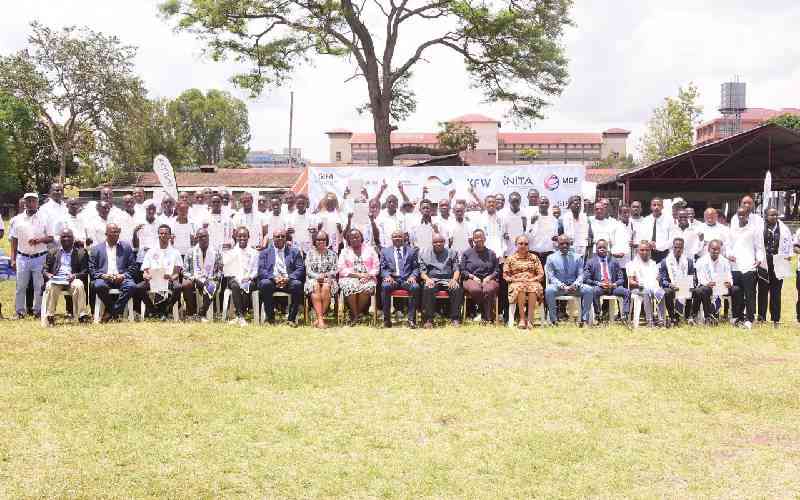
“Today, we are witnessing the power of Recognition of Prior Learning under the Skills Initiative for Africa (SIFA) project a partnership that has given visibility, dignity, and formal recognition to Kenya’s skilled workforce,” said PS Mwadime.
The Skills Initiative for Africa (SIFA) project implemented by NITA in collaboration with MDF Training & Consultancy Eastern and Southern Africa (MDF-ESA) is supported by the African Union, European Union, the German Government through GIZ, and the German Development Bank (KfW).
It provides an alternative pathway for skilled workers to gain national certification for competencies acquired informally through work experience or apprenticeship.
Out of 277 candidates screened, 148 underwent final assessment, and an impressive 96.4 percent were declared competent. The candidates were drawn from key trades, including masonry and computer repair and maintenance.
“This achievement reflects the incredible potential within our informal sector men and women whose talents have powered our economy, built our homes, repaired our machines, and kept our industries running, often without formal recognition,” said Mwadime.
Kenya’s informal sector employs over 80 percent of the workforce, yet many lack formal qualifications. By bridging that gap, the government aims to boost employability, strengthen productivity, and elevate dignity in work.
The RPL programme, officials noted, will now expand to other sectors such as plumbing, electrical work, hospitality, and digital services.
“Kenya’s transformation will be built not by chance, but by skilled hands, innovative minds, and determined people. Through RPL, we are unlocking the full potential of our workforce,” PS Mwadime said.
He lauded the graduands who successfully underwent assessment and certification, noting that they represent Kenya’s “hidden goldmine of talent.”
“This initiative validates the hardworking mason in Mombasa, the computer technician in Kibera, and the artisan in Kariobangi. Your experience matters, your skill is valuable, and your contribution builds Kenya,” Mwadime said.
He added that the programme goes beyond certification by offering skills gap training, work readiness, and entrepreneurship development, empowering participants to create jobs in their communities.
Stay informed. Subscribe to our newsletter
“The certificates you receive are not just credentials; they are symbols of your resilience, craftsmanship, and contribution to national development,” Mwadime told the graduates. “Through RPL, we are turning experience into a national asset.”
The PS described RPL as more than an assessment process calling it a “transformative policy instrument” that enhances dignity of work, improves access to decent employment, and creates pathways for lifelong learning.
“This initiative directly contributes to the Bottom-Up Economic Transformation Agenda (BETA), which prioritizes skills, enterprise, and productivity at the grassroots. It gives practical meaning to inclusive growth by bridging the gap between experience and opportunity,” he said.
Mwadime announced that the Ministry of Labour and Skills Development will scale up RPL across all counties and sectors, institutionalizing it within Kenya’s Technical and Vocational Education and Training (TVET) ecosystem.
“As a Ministry, we are committed to ensuring that ability, not background, defines opportunity,” he said.
“We are sitting on a goldmine of talent. Employers must now embrace certified workers as engines of productivity and quality assurance.”
Theresa Wasike, Acting Director General of NITA, said the initiative marks a historic moment in Kenya’s journey to formalize the informal sector.
“For years, Bernard’s skilled hands have built homes and high-rise offices in Nairobi — yet without a certificate, his talent remained invisible, locking him out of better jobs and fair pay. That changed today,” she said.
Wasike described RPL as “a structured process that certifies knowledge and competencies gained outside traditional education”, allowing artisans, technicians, and tradespeople to have their skills formally recognized.
According to NITA, the programme was implemented with support from the Kenya National Qualifications Authority (KNQA) and the Technical and Vocational Education and Training Authority (TVETA) to ensure compliance with national standards.
PS for TVET, Dr. Esther Muoria, has always commended the programme as a “significant milestone in acknowledging the wealth of skills and experience gained by our industry practitioners.”
“The State Department for TVET remains steadfast in promoting Recognition of Prior Learning as a vital avenue for validating and formalizing industry-acquired skills,” said Dr. Muoria.
She noted that national polytechnics will oversee registration, facilitation, and certification of RPL candidates, ensuring quality and credibility in assessment.
“Our goal is to equip youth with industry-relevant skills through the Competency-Based Education and Training (CBET) model and RPL framework, ensuring that every Kenyan’s talent is recognized, nurtured, and harnessed for national growth,” she added.
